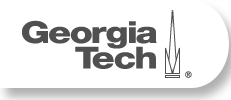Latest News and Events
Structure Discovery in Sampled Spaces
We discuss a number of tools from computational topology and geometry
for structure discovery and visualization in large distributed data
sets. Topology studies the connectivity of spaces, so it is global by
its very nature. It is able to determine certain connectivity
invariants in a way that is unaffected by deformations of an object and
does not require explicit parameterizations of the object geometry. Its
strength lies, in a sense, in its relative insensitivity to geometric
properties, which permits it to discern underlying combinatorial
information about how the geometric object is constructed, and
therefore detect some qualitative properties. This type of global
analysis can be quite important in understanding the overall structure
of data sets. Geometry, though more local by nature, can also be used
to study global structure by discovering how parts of an object relate
to another, or how parts of different objects can be similar. For
example, the Erlanger program of Felix Klein has fueled for over a
century mathematicians' interest in invariance under certain group
actions as a key principle for understanding geometric spaces. Such
invariances or symmetries can also be key to understanding and
reasoning about data sets. We aim to study how such tools can lead to
useful segmentations of data sets, and the discovery of repeated
structure, symmetries, and other global patterns.


